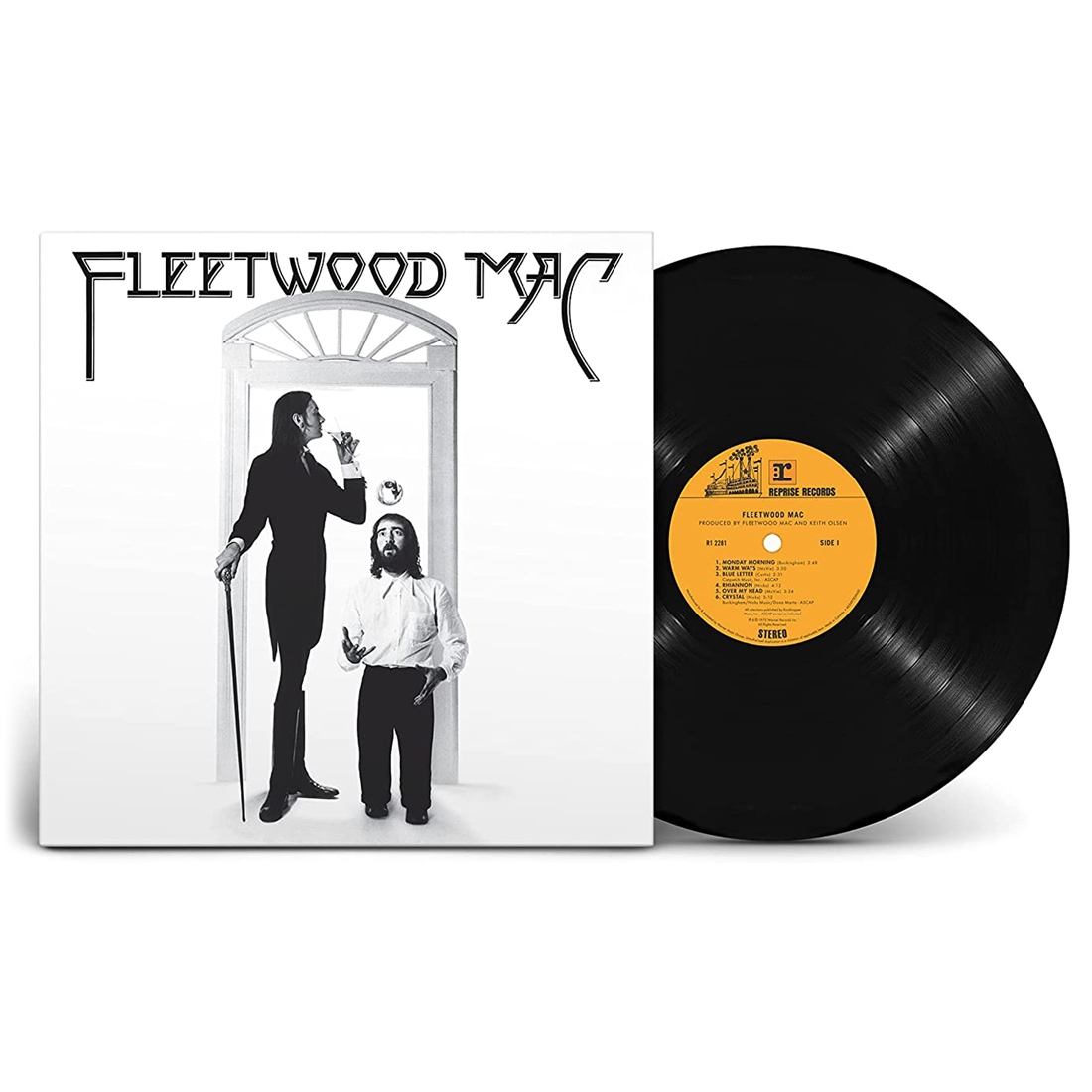Fleetwood Mac has captivated audiences worldwide as one of the most iconic and influential bands in rock history. Their distinctive fusion of blues, rock, and pop has resonated deeply with fans across generations. But who are the masterminds behind this legendary band, and what is the fascinating story of its formation and transformation?
Fleetwood Mac's journey is a compelling narrative of raw talent, unwavering perseverance, and remarkable evolution. From its roots in the blues scene to becoming a globally recognized name, the band has experienced numerous lineup changes, each adding a unique dimension to its music. This article delves deep into the history, members, and enduring legacy of Fleetwood Mac, unraveling the mystique that surrounds this extraordinary group.
In the subsequent sections, we will explore the origins of Fleetwood Mac, the pivotal figures who have shaped the band, their contributions, and the profound impact they've had on the music industry. Whether you're a devoted fan or new to their music, this article aims to provide a comprehensive understanding of Fleetwood Mac and its timeless legacy.
Read also:Exploring The Phenomenon Of Sixy Video A Comprehensive Guide
Table of Contents
- The Rich History of Fleetwood Mac
- Key Figures in Fleetwood Mac
- The Band's Formation
- Lineup Changes Throughout the Years
- Influences and Musical Evolution
- Major Accomplishments and Awards
- The Lasting Legacy of Fleetwood Mac
- Biographical Insights of Key Members
- Impact on the Music Industry
- The Future of Fleetwood Mac
The Rich History of Fleetwood Mac
Established in London in 1967, Fleetwood Mac initially emerged as a blues band, drawing inspiration from legendary blues icons such as Muddy Waters and Howlin' Wolf. Named after its drummer, Mick Fleetwood, and bassist, John McVie, the band's early sound was deeply rooted in blues. Peter Green, the lead guitarist and vocalist, played a pivotal role in shaping their initial identity. Fleetwood Mac quickly established a reputation for their electrifying live performances and intricate guitar work, captivating audiences and critics alike.
As time progressed, Fleetwood Mac embraced a broader musical spectrum, incorporating elements of rock and pop into their repertoire. The band's transition from a blues-centric ensemble to a mainstream rock phenomenon was significantly marked by the arrival of Stevie Nicks and Lindsey Buckingham in the mid-1970s. This fresh lineup infused a rejuvenated sound and energy, propelling Fleetwood Mac to unparalleled international fame.
The Band's Formation
The inception of Fleetwood Mac can be traced back to the vibrant British blues scene of the 1960s. Peter Green, a former member of John Mayall's Bluesbreakers, aspired to create his own band. He collaborated with Mick Fleetwood, also a Bluesbreaker alumnus, and John McVie to establish a group dedicated to the blues genre. The band's original lineup also included guitarist Jeremy Spencer and vocalist Danny Kirwan, whose contributions were instrumental in defining their early sound.
Key Figures in Fleetwood Mac
Fleetwood Mac's lineup has undergone several transformations over the decades, with each member bringing their distinct talents to the forefront. Below is an in-depth examination of the key personalities who have played a crucial role in shaping the band's storied history:
Biographical Insights of Key Members
Below is a concise overview of the principal members of Fleetwood Mac, along with their significant contributions:
| Name | Role | Years Active | Notable Contributions |
|---|---|---|---|
| Peter Green | Lead Guitarist, Vocalist | 1967-1970 | Founding member, cornerstone songwriter, iconic blues sound |
| Mick Fleetwood | Drummer | 1967-Present | Band's namesake, driving force behind its enduring legacy |
| John McVie | Bassist | 1967-Present | Steadfast rhythm section, foundational member |
| Stevie Nicks | Vocalist, Songwriter | 1975-Present | Enchanting voice, mystical songwriting prowess |
| Lindsey Buckingham | Guitarist, Vocalist, Songwriter | 1975-2018, 2023-Present | Innovative guitarist, producer, and songwriter |
Lineup Changes Throughout the Years
Fleetwood Mac's lineup has experienced significant transformations throughout its illustrious history, with members joining and departing at various stages. Some of the most noteworthy lineup changes include:
Read also:The Lasting Impact Of The 2006 Volleyball Shooting Lessons And Remembrance
- 1967-1970: The original lineup featuring Peter Green, Mick Fleetwood, John McVie, Jeremy Spencer, and Danny Kirwan.
- 1970-1974: Following Peter Green's departure, the band embarked on a period of experimentation, exploring different combinations of members.
- 1975-Present: The inclusion of Stevie Nicks and Lindsey Buckingham marked a pivotal chapter for the band, leading to their commercial breakthrough and the release of the legendary album, "Rumours."
Influences and Musical Evolution
Fleetwood Mac's music is a harmonious blend of diverse genres, encompassing blues, rock, and pop. Their early compositions were heavily influenced by the blues, with Peter Green's guitar work standing out as a defining feature. However, the arrival of Stevie Nicks and Lindsey Buckingham ushered in a more refined and commercially appealing style, significantly altering the band's sonic landscape.
Evolution of Their Musical Style
The band's capacity to adapt and evolve has been instrumental in their sustained success. From the raw intensity of their early blues-inspired works to the polished pop-rock brilliance of albums like "Rumours," Fleetwood Mac has consistently pushed the boundaries of their musical identity.
Major Accomplishments and Awards
Fleetwood Mac has garnered countless accolades throughout their illustrious career, acknowledging their invaluable contributions to the music industry. Some of their most notable achievements include:
- Induction into the Rock and Roll Hall of Fame in 1998.
- Multiple Grammy Awards, including Album of the Year for "Rumours" in 1978.
- Exceeding 100 million records sold globally, solidifying their status as one of the best-selling bands of all time.
The Lasting Legacy of Fleetwood Mac
Fleetwood Mac's legacy is defined by enduring influence and groundbreaking innovation. Their music has transcended generational boundaries, continuing to inspire new fans and aspiring musicians. The band's ability to seamlessly blend various musical styles and their openness to change have cemented their place in music history.
Impact on the Music Industry
Fleetwood Mac's impact on the music industry is immeasurable. They have set an unparalleled benchmark for what a rock band can achieve, both artistically and commercially. Their influence is evident in the works of countless artists who have followed in their footsteps.
The Future of Fleetwood Mac
Despite the challenges posed by lineup changes and personal conflicts, Fleetwood Mac continues to tour and record music. The band's recent reunion with Lindsey Buckingham has reignited excitement among fans, with plans for new music and tours on the horizon.
Upcoming Projects
Fans can eagerly anticipate new releases and performances as Fleetwood Mac continues to evolve and innovate. With a storied past and a promising future, the band remains a vital force in the music world.
Conclusion
In summary, Fleetwood Mac's journey is a testament to the transformative power of music and the unwavering resilience of its members. From their modest beginnings as a blues band in London to becoming one of the most celebrated rock groups in history, Fleetwood Mac has left an indelible mark on the music industry. Their ability to adapt and innovate has ensured their continued relevance and popularity.
We encourage you to share your thoughts and experiences with Fleetwood Mac in the comments below. Whether you're a long-time admirer or a newcomer to their music, there's always something new to discover about this legendary band. Be sure to explore other articles on our site for further insights into the world of music.


